The David Lee Interview: Ornette Coleman and the Battle of the Five SpotDavid Lee's new book takes a close look at one of the turning points in the history of jazzBy Jim Dupuis David Lee admits that his resume is a mess. I’m guessing he didn’t have an answer for the question “So what do you want to be when you grow up?” He’s played in folk trios and jazz and classical ensembles. He worked in a tool rental shop where he fixed chain saws. He worked for the jazz magazine Coda. His duties involved selling records and books, working in a recording studio and eventually playing in the boss’s band, The Bill Smith Ensemble. He and his wife have been publishers, running Nightwood Editions. He co-authored Paul Bley’s autobiography “Stopping Time” and recently completed a book on the history of chainsaws. Just before that, he reworked his Master’s thesis into “The Battle of the Five Spot: Ornette Coleman and the New York Jazz Field.” He feels strongly about the lack of opportunities for musicians who don’t buy into the mainstream jazz formats that are prevalent on radio and in jazz series and festivals. Early in March we had a chat about “The Battle of the Five Spot,” sociological theory, the ever widening schism in jazz and meeting famous musicians. Jim Dupuis: I just finished reading your book. I did enjoy the book and got into the actual happenings with the characters and the interactions; the discussion of Norman Mailer and Baldwin intrigued me and also having Max Roach punch Ornette Coleman in the mouth. I wouldn't expect that. I've been to a Max Roach concert and there was this, almost, shy man sitting there playing his drums, almost embarrassed it seemed. To think, that this man would go and be so incensed and punch someone else in the head because he was changing jazz. I didn't know that--and there are other tidbits in there that are amazing. Miles Davis--I'm not surprised (laughs)--you don't expect a nice reaction from Miles Davis about anything, so I wasn't surprised by his negative reaction. So I did enjoy the book. There's no doubt about that. One message that I tried to put across in the book was that their objections were not necessarily musical. In fact once the fire of Ornette's debut died down a lot of them came around to Coleman's music and a year or so after Max Roach punched Coleman in the mouth he was playing with him at the Newport Rebel Festival. And a lot of them actually--their music became freer as Ornette Coleman's music actually was. In the meantime it was a difficult transition to make. In studying Pierre Bourdieu, we actually based a lot of his views of artistic fields on studying 19th century literature. Studying the culture of the Parisian salons and the whole idea who the avant-garde was and if you were too avant-garde you didn't get into the salon at all, but if someone who was already established sponsored you, consecrated you, in Bourdieu's words, then all of a sudden the power structure in the salon would be changed because all of a sudden this new radical kind of writing was making what had previously seemed modern, now seem quite old fashioned. All these dynamics were in statements about artistic fields. I could just see them all at work in what I knew about the Five Spot and jazz in 1959 and jazz now and what had gone on then. JD: Yes, it definitely does apply to the jazz field. You can see that all the characters are interchangeable. You are going to have publishers--one a book publisher, the other a music publisher; you are going to have critics in both cases; the only change seems to be that the artist on one side is the writer and on the other side the musician. It totally applies. I found it kind of interesting--that combination. DL: A battle of status in a sense. I think that's what I was trying to say in the book. Whether or not Miles Davis liked Ornette Coleman's music, it really was a question of status for him. I mean, it was important for Miles, and it was throughout his career, that he be the hippest thing happening at any given time. JD: He was all about status. There's no doubt about that. DL: Yes, it's to the extent that we are all about status, you know. I remember--and I think the book is someway a fruition of something I've known for a long time--years ago when I knew almost nothing about jazz, I remember, in fact, I was working running a freight elevator, over Christmas, in the old Simpson's store in Toronto and I found a copy of what was it--I think Hi Fidelity magazine in like a dumpster and I was reading it. Duke Ellington had died that year and there was an article by a prominent critic in there saying that he thought that Duke Ellington was really very good. I was reading this and I was thinking--wait a sec. I didn't know much about jazz at the time but I thought Duke Ellington was really good. Then the writer goes on to say that in fact Ellington, himself, knew that he felt this way about him. And so you realize in the course of reading the article that the guy is only making these statements about Ellington in order that we know he had this relationship with Ellington in order that we know. Therefore he gets his consecration off of letting us know that Ellington had an opinion about him. That's much better than letting us know about his opinion his opinion of Ellington. So now he gets kind of the magic touch. I mean, that sort of thing goes on all the time in jazz and in all the arts, you know. There's always someone totally irrelevant at a concert who has to come up and meet the musicians, for no other reason than they can say afterwards that I was talking to so and so and he said ... etc., etc. You know all these status games, they are all playing all the time, that go on in all segments of society all the time and they really came up in "The Battle of the Five Spot." JD: Ya, then again I'm probably guilty of what you said, in some ways. DL: (laughs) Well as I say, we all do it in different ways for different reasons. It's part of what makes art so vital, you know and it's part of what makes artistic communities vital. Any artistic community, I've always found, has a huge social element and without that it's just gone. There's just nothing really happening there and sort of the idea that artists even work in isolation gets shot down when you look at it in this way. You know the way in which the audience is really part of the art and their Here's another example from the time I worked in The Jazz & Blues Centre, I remember, I think around 1980, Archie Shepp put out a record and Archie Shepp is a fairly avant-garde American saxophone player, with a pianist called Horace Parland. They did just old gospel tunes and spirituals; just tenor saxophone and piano. It was a beautiful record and we sold a lot of them in The Jazz & Blues Centre and the way to sell them was just to play it and people would buy it immediately. I remember I was playing it one day and one of our old customers came in and he said "Oh my goodness that's great. Who is that?" and I said "It's Archie Shepp." and he said "I hate Archie Shepp!" and he just turned away in disgust. Of course Archie Shepp was very political and played very avant-garde music. In the '60s he said that he thought of his saxophone as being a machine gun in the hands of the Viet cong. You know Archie Shepp was a political figure and a derisive figure in many ways. So, because of that this man completely heard the music differently--once that he understood that it was Archie Shepp. JD: That's quite amazing. I've heard those kinds of comments before, too and people can be narrow-minded. As you say, art can't exist in a vacuum and it's about the person who did it and the process, but if there was no one there ever to look at it or hear it or read it--it's almost "What's the point?" DL: We bring an awful lot of stuff to art, you know. We get a lot out of it but we bring a lot, too. That's the sort of stuff I tried to approach in "The Battle of the Five Spot." JD: I've got some Ornette Coleman and I'll have to listen to it again. I did see Ornette Coleman in the late '80s with one of the fusion type bands. I recall going. I wasn't into jazz that much at the time and what he played wasn't that far off what in my mind was jazz. I didn't find it was like what I thought of Sun Ra--going out into space musically--so it's all perception. It was interesting, but I was almost disappointed that it wasn't weird enough (laughs). I'm saying this is good, but in my mind I'm thinking when is he going to get weird, you know. DL: It's hard to say, you know, because I really got immersed in jazz in the '70s when I began working at The Jazz & Blues Centre. I never listened to a lot of Charlie Parker and then hearing Ornette Coleman. I thought he sounded a lot like Charlie Parker, except with no piano. You know the idea that it was weird didn't really occur to me either, but the schism that he created--one interesting thing about it is that it has persisted over the years. Certainly there was a tension through the '70s and '80's. Say you would have a jazz series and it would have Oscar Peterson and also the Art Ensemble of Chicago in it. People who would love one concert would hate the other. We see through the '90s that now that schism has successfully widened. So a free jazz group such as the Chicago Art Ensemble simply doesn't play in those series or those jazz festivals anymore. Back years ago at the Ontario Science Centre they always had a jazz series here. Years ago there would be one kind of new music band as part of it. Now it just doesn't enter into in anymore. Everyone in that series plays in the basic song form. The Toronto Jazz Festival doesn't bring in that post-Ornette Coleman kind of music any more. And if you listen to the CBC--at least English CBC; French CBC is quite different--Ornette Coleman might as well not exist. They now have these terrible shows like After Hours where jazz is basically interpreted as a sort of cocktail music, and it has a wide range of artists that play on that, but only if at some point they made a very low-key, mellow piece. Only if they recorded such a piece will they get on to After Hours. So I can see the schism that came with Ornette Coleman being fatally widened right now and certainly the sort of Wynton Marsalis-Stanley Crouch axis in New York which has become very influential has only gone to continue that. The whole idea that jazz is now the repertory music based in the song form has become just as rigid as the idea of symphonies that play Mahler year after year after year. JD: That's a good segue into Ornette Coleman. Speaking of improvisation and the other things you said--he was quite an interesting man. I think some of my listeners know a bit about him, but maybe not a lot. Reading your book "The Battle of the Five Spot: Ornette Coleman and the New York Jazz Field." Why don't you tell us how the book came to be and a bit about the book. DL: It came to be because I was out in Pender Harbour, BC and I had published the Paul Bley book. I was basically working in a tool rental store, fixing chain saws and doing that sort of stuff and I thought, well, with my knowledge and background I should really be in the communications, teaching, academic, you know information part of things. I thought, for example, to get college teaching jobs I needed a master’s degree. There weren't really M.A. programs that would accept me, but there was a very good one in Hamilton, Ont. at McMaster University--it was an M.A. in Music Criticism--that was very glad to accept someone who had at that point extensive real experience in music and writing, but who had gotten terrible marks as an undergraduate in English, you know and who was largely self-taught in music. They accepted me immediately and of course during the two years I was at 'Mac' I had to come up with a thesis. Actually I was working on a very good thesis which was "Jazz and the Image of Romantic Genius." It was the whole idea about what genius is in our society, like, how important it is as a symbol, in a sense I was saying that genius doesn't even exist but it is the standard by which we measure a lot of things including the arts. But in my second year there, I wrote a paper which was called "The Battle of the Five Spot" and in it, because it was a criticism course I started off talking about the influence of critics on Ornette Coleman when he appeared at the Five Spot, because Paul Bley had told me years ago that he felt that critics had been very important in being mediators between Ornette Coleman and his strange new music and the public at large, who didn't know what to make of this strange new music. Bley said that it was critics who performed a yeoman’s service in interpreting Ornette to the masses and saying this is real and this is happening and this is what's going on and you should give it a serious listen. And from that, I got into the whole idea how the music was received by different communities within the jazz field, I called it, because I was also exposed to a French sociologist called Pierre Bourdieu, while I was at 'Mac' and his ideas about what he called artistic fields really seemed to fit exactly what was going on at the Five Spot Cafe in New York City in 1959 when Coleman appeared there. JD: Thanks. I got to learn some more things that I didn't know about jazz and believe me I have a lot to learn. So that's a good thing. Maybe you can tell us something about yourself. I understand that you are a musician and obviously and author. Would you tell us about your background? DL: My resume is kind of a mess at this point. I'm from Mission, down in the Fraser Valley, and I got interested in music while I was studying English at UBC many years ago. I was sort of interested in the singer-songwriter guitar player mode then. After university I moved to Toronto, and started to study double bass and became very involved in the improvised music JD: It seems that you have. Yet they all seem to come back to jazz as some point. There always seems to be some relationship with jazz and music obviously. So you worked for Coda. That must have been kind of neat. DL: Ya, with Coda, all those years that I was there, it had the feeling of a collective enterprise. It wasn't, because Bill and John owned it, but that's the way they ran things. We all did all jobs there at some point or another. So it involved working in the store; it involved putting out the magazine; you'd go and be sitting in a recording session and once we got more active we did our own recording sessions. It was really a cultural feast in those years that I worked for Coda. The sort of signature moment of those years came when I was working by myself in the store one day and there were two musicians in the store that day. One was the avant-garde saxophonist Julius Hemphill, who unfortunately is no longer with us and the other was the neo-swing player Scott Hamilton. They were both in the store at the same time so I introduced them to each other. They were both from New York but didn't know each other, of course. Actually, I remember they were both buying the same book about Billie Holiday. The Jazz & Blues Centre was that kind of place. It was just a catalyst for all sorts of things to happen. JD: Sounds like "never a dull moment." I envy you for that, sounds like it was a really neat time--all the different jobs and meeting the people. Cool. DL: It was quite something. A couple weeks in the 70's I worked in the store and one day a little English guy came up and shoved a Paul Desmond record in my face and said (uses English accent) "Is this record any good?" and I said, "Oh gee, I haven't any ..." and it was Charlie Watts (Rolling Stones drummer). The Stones manager had come to the store the day before and scoped it out to make sure it was cool so Charlie could come in. Of course he's a great jazz collector and just wanted to see what we had. JD: Was he testing you? DL: He just wanted to know if it was a good record or not and of course if he would have asked me a year or two later I would have said, "Yes, it's a Paul Desmond record with the Ed Bickert Trio" and "Yes, it's an extremely good record." But being young and stupid is an important part of the process. Actually I think the great thing about jazz is the interface of improvisation, composition, intention and chance. We are always trying to make music in the moment and anything can happen. I think it is a very good learning ground for life in general (laughs), because life tends to be like that. You never know what's around the corner. JD: I'd like to thank you for speaking with me about your book "The Battle of the Five Spot : Ornette Coleman and the New York Jazz Field." The Battle of the Five Spot: Ornette Coleman and the New York Jazz Field is published by Mercury Press and is available online at www.nwpassages.com and many bookstores. |
Reviews
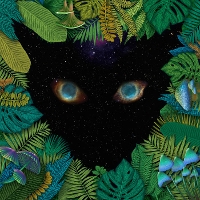
Mngwa
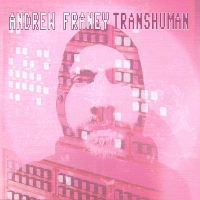
Andrew Franey
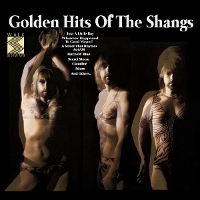
The Shangs

Alex Cuba

Tri Nguyen
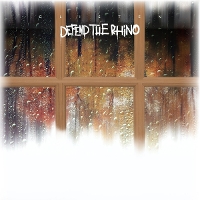
Defend The Rhino

Talltale
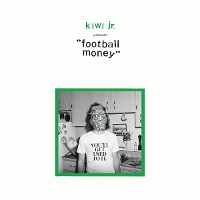
Kiwi Jr.

Plaster
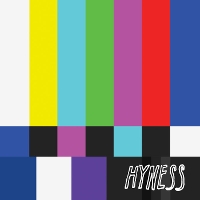
Hyness
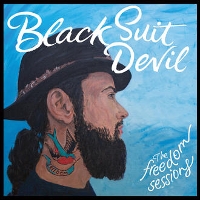
Black Suit Devil
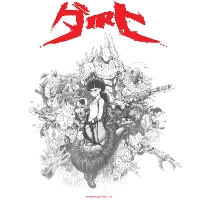
Yamantaka // Sonic Titan
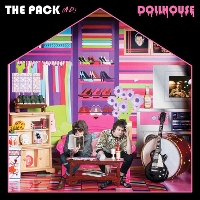
The Pack A.D.
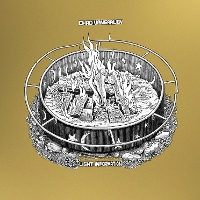
Chad VanGaalen

Potengowski Anna Friederike
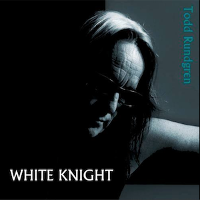
Todd Rundgren

Old 97's
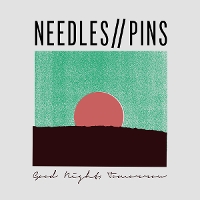
Needles//Pins


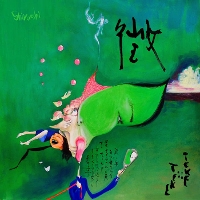
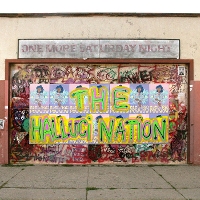
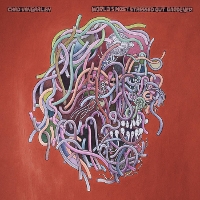
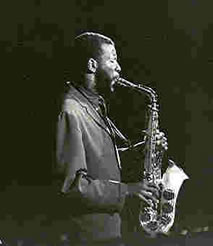
 We bring an awful lot of stuff to art, you know. We get a lot out of it but we bring a lot, too. That's the sort of stuff I tried to approach in "The Battle of the Five Spot"
We bring an awful lot of stuff to art, you know. We get a lot out of it but we bring a lot, too. That's the sort of stuff I tried to approach in "The Battle of the Five Spot" 

